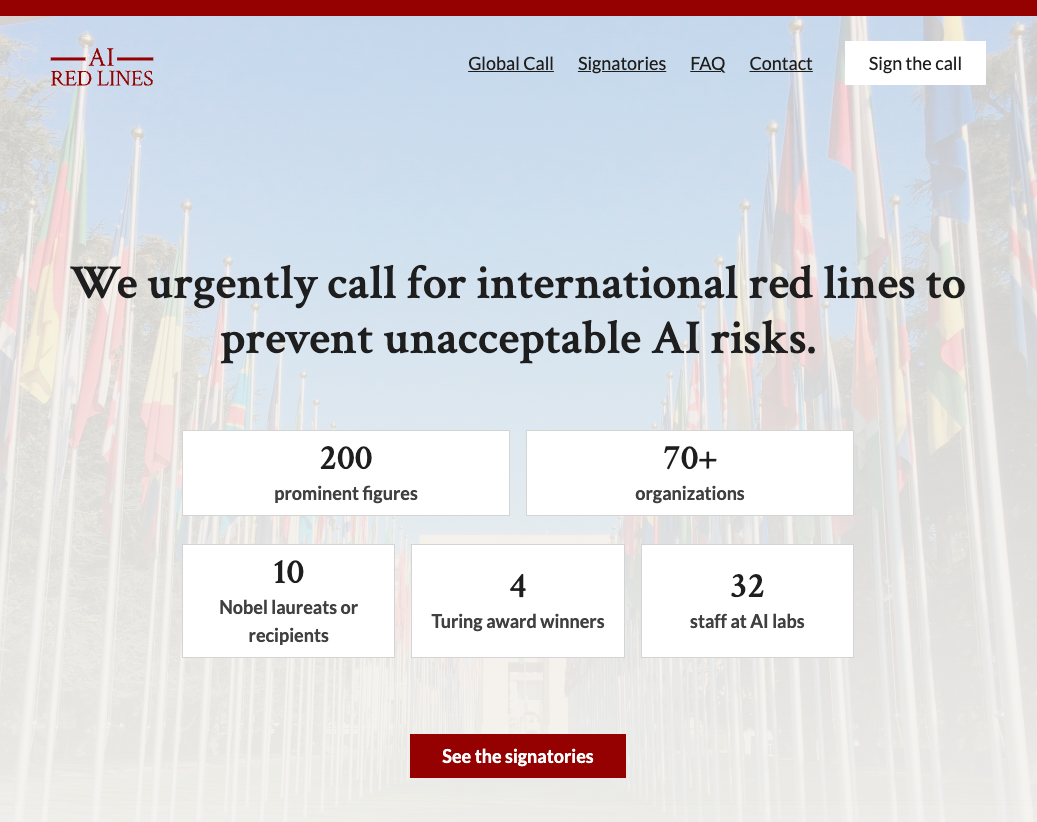
Arthur Grimonpont

A historic call has just been launched by a coalition of Nobel Prize laureates, former heads of state, and world-renowned intellectuals:
“We urge governments around the world to establish red lines on artificial intelligence to protect humanity.”
Announced by Nobel Peace Prize laureate Maria Ressa at the opening event of the 80th United Nations General Assembly, the initiative brings together more than 200 leading figures:
The signatories warn that without binding international rules, humanity faces major dangers: artificially engineered pandemics, mass manipulation, or loss of control over autonomous systems.
Recent incidents involving chatbots accused of manipulating their users to the point of causing their deaths only provide a small glimpse of the much greater threats looming in our near future if we fail to act.
Hundreds of millions of people already use advanced AI systems, and the leaders of OpenAI, Anthropic, and Google DeepMind themselves acknowledge the serious risks associated with their models in areas such as biological weapons or cyberterrorism.
This global call therefore urges states to draw binding international red lines to ban AI uses and capabilities that pose risks deemed universally unacceptable for life and human dignity.
Some examples of possible red lines: banning AI from controlling nuclear weapons, assisting in the design of biological weapons, or being used for mass surveillance.
Some believe the world is too divided to agree on such rules. This outlook is dangerous, as it condemns us to inaction and entrenches a reckless “race to the bottom” scenario. Let us remember that treaties banning biological weapons and limiting nuclear proliferation were concluded at the height of the Cold War.
“History teaches us that when we are faced with irreversible and borderless threats, cooperation is the only rational way to pursue national interests,” emphasizes Maria Ressa.
If governments cannot agree on what they want AI to do, they must at least agree on what it must never do.
CeSIA is proud to have initiated this call alongside The Future Society and the Center for Human-Compatible AI, with the support of 20 partner organizations.
The full declaration and the list of signatories are available at: red-lines.ai